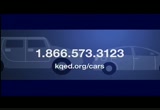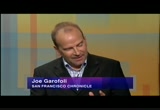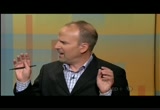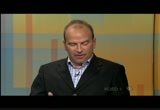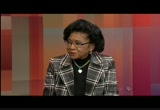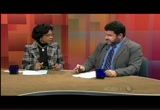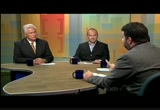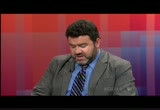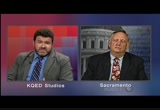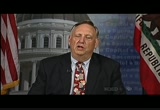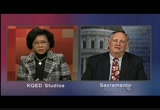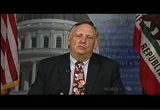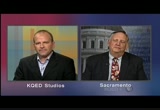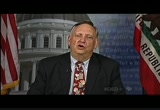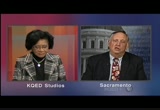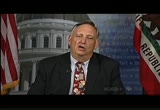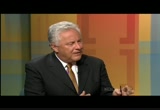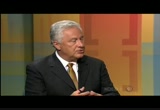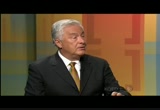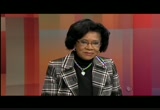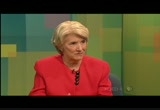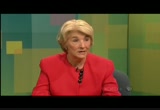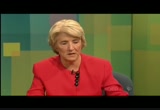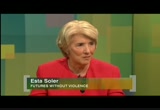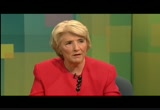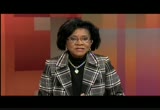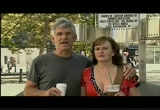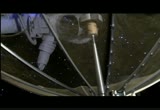tv This Week in Northern California PBS October 6, 2012 1:00pm-1:30pm PDT
1:00 pm
closed captioning of "this week in northern california" is made possible by the firemen's fund foundation. >> belva: the presidential candidates get back to the campaign trail after their first debate, with governor romney picking up some momentum. president obama returned to the golden state this weekend. there's high interest in several congressional races in the state. will california tip the scales for the control of the u.s. house? governor brown vetoes few of the more than 1,800 bills on his desk, as he presses for support of proposition 30 on the november ballot. and gas jumped as much as 20 cents overnight, with the spike expected to continue.
1:01 pm
plus, anti-domestic violence leader estra sola on making all violence an issue of global concern, coming up next. good evening, i'm belva davis and welcome to "this week in northern california." on our news panel tonight, dan walters, political column nis for "the sacramento bee." in studio, we have tom vacar, computer editor for ktvu news
1:02 pm
and josh richman, regional political reporter for the bay asia news group. and joe garofoli, political reporter for "the san francisco chronicle." joe, you were in denver for the first presidential debate. must have been hard covering it, since there were so many people tweeting that night. tell us what's happened since then. how are the candidates -- >> things have really evolved over the last 40 ho8 hours. it was widely perceived that the president did not have a good night. didn't really realize the date is also a show, not just a competition of ideas. but in the intervening 48 hours, been a lot of fact checking, some of the stuff that romney said, that's catching up to him and the job numbers have come out today. and those have been helpful to the president, a little pit, the unemployment rate dropped to 7.8%, the lowest since he's been president, and that helps. because the republicans have been saying the last three
1:03 pm
years, unemployment rate has been high and not dropping below 8%. so, this is sort of a symbolic victory. not going to move voters, but a symbolic victory for the president. >> belva: how was it covering it in this new era of instant messages for a reporter who is trying to get to the real news? >> well, you have -- there's something after the debate called spin alley. that's where all the folks, the operatives from the campaign will try and spin you, no matter what happens in the debate. oh, my candidate won, he was tremendous. but right -- with social media, people are watching the debate. they're on twitter, they're on facebook and forming their own narrative there. they are commenting. and now, there's a study that came out today that said the impressions of people on facebook and twitter were much more positive about the president than it was in the traditional media, painted the portrait of the debate. >> sort of seemed like mitt romney cornered the market on red bulls there and the president hadn't had enough and
1:04 pm
that he wasn't doing what he often does best, which is sort of connect with people in some semi-clint semi-clintonian way. is there an opportunity for him? >> he has to the next time. he left a stuff on the table. didn't mention the 47%. he didn't talk about women's issues. he didn't push back on romney on a lot of the stuff that he was pounding him on. the president didn't call him out on stuff. it was a lot of the part seasons, obama supporters are very disappointed in his performance. and he's going to have some ground to come up. it put romney back in play. >> let me ask you this. what was the feeling like in the room? we saw what was going on on the stage, but you really didn't get a sense of what was -- was there a palpable feebling in the room that things were going well or not well? what was that like? >> the dirty little secret of covering a presidential debate is that you are not in the room. reporters are not in the room. we're in a barn, a gym, actually, you know, nearby.
1:05 pm
but there's definitely a feeling afterwards, you know, of what happened and there was a surprising performance and it is a performance. at some level. the spin meisters from -- axelrod and all those guys, the president's advisers, they stayed and answered the questions but they got out of there quickly. the republicans could have stayed there all night. romney supporters. they wanted to talk about this and gloat all night. >> belva: some critics said the president spent so much time stating what romney believes but never told as much as he should have about what he believes. >> sure, almost like too much of the nice guy. he was saying, governor romney and i agree on this. and he -- you wanted to paint differences. if you are running for the highest office in the land, you want to say how you are different from your opponent and the president didn't do a good job of differentiating himself. romney did. in the theatrics of the debate, he was very pointed. he was concise.
1:06 pm
and something he hasn't been throughout the campaign. >> belva: he'll be here on what day? the president. >> monday, grabbing cash. he'll be having a semipublic event. >> belva: and the v.p. debate is? >> thursday. that's must-see tv. that's going to be chaotic television. set the dvr now. >> belva: okay. that's what's happening at the top of the ticket. we'll move to those areas down where there's lots of action, as the democrats try to take back the house, josh. >> exactly. well, it's hard to get excited sometimes about the presidential election here in california, where sort of feels like a foregone conclusion how the golden state is going to go. but this state is home to 11 house districts that are considered either competitive or close to competitive. and that's in the -- in the scheme of the democrats needing 25 seats if they're going to retake the house of representatives and perhaps
1:07 pm
reinstall nancy pelosi as speaker of the house. and some of those races are right here in northern california. you've got one of the very closest races in the state, actually, is where incumbent republican dan lundgren is being taken on for the second time but ami barra, the physician from elk grove. and the voter registration has changed in that district, due to redistricting and some very intensive voter registration drive on behalf of the democrats. they actually have a one percentage point lead in voter registration, which means that it is neck and neck, very close. there's been a lot of money dumped into this and other races by outside interests all over the country, the chamber of commerce just last week launched a $2.8 million ad blitz that's supposed to help buoy eight republican house candidates across the state, including lundgren. also here in northern california, we've got incumbent democrat john garamende and
1:08 pm
jerry mcnerney. those aren't quite such close races. they are leaning or likely democrat races. but they're in place. >> belva: supposed to be a hot race down in the valley, the new district, mcnearny. is that turning out to be a real race or not? >> well, the cook political report, which has a really good grasp on these things, has that listed as a leaning democratic race right now, which is not so far as likely democratic but it's not considered a tossup, either. >> can i interject a little something here? >> absolutely. >> belva: please, dan. >> they start out this year with nancy pelosi and other democrats thinking that -- i think he she said the pathway to a majority is in california. they talked about picking up eight seats. that's gone by the board now. really, they didn't get their candidates nominated in a couple of districts. one district, two republicans are running against each other. and the feeling among the handicappers now, the democrats would be lucky to come out with
1:09 pm
two, three, four seats in california. and that forms the core of the consensus now among the handicappers in washington that the democrats have very, very little chance of taking back control because they are doing so poorly in california. >> it's definitely a long shot. we carried a story recently about whether the top of the ticket, the romney/obama race was really having any effect on how people look at the congressional candidates and the answer generally is that it doesn't, even when romney was having a bad couple of weeks, because, you know, there's no effective romney campaign here in california. these republicans get to sort of run their own campaigns and their own district, without a lot of national drag. that said, the two tightest races, lundgren up here and vilbray down in san diego, some other races, an open seat where julia brownley is up against tony strickland, these are
1:10 pm
important. it is a very, very long shot for the democrats to do it, but if they lose those seats, it ain't going to happen at all. >> belva: is outside money a factor? >> it's huge. >> belva: chime in on that, dan. >> you mentioned the $2.8 million the chamber is paying. listen, the airwaves in sacramento are saturated with lundgren and berra ads and quite a few for ricky gill and mcnearny and i mean, this is hot stuff going on here. there's a lot of outside money. er think there's a place where the presidential thing does affect these congressional races and that's in turnout. i don't think we're going to see the kind of turnout this year we saw four years ago and that could hurt the m thes. there's really nothing driving voter turnout in california. there's nothing going on at the presidential level. there's no u.s. senate seat seriously at stake. there's really nothing out there to get that kind of visceral reaction to get a turnout. and if is turnout is substantially lower, that will hurt the democrats.
1:11 pm
>> belva: we sort of grabbed your story a bit. >> that's fine. >> belva: do you agree that outside money is having an influence? >> it absolutely is. whether it's the partisan super-pacs, business or whatever, there's a lot of money being spent here. buff i guess is very good for political consultants in california. >> belva: we turn to dan walters now there in sacramento, invite you in to talk this time about the governor, dan, and what is it, a balancing act, some people are saying that he has been trying to do in order to get proposition 30, the tax measure that he wants very badly to win in november. so, how did he balance his act? >> as you might recall, many years ago, jerry brown expostulated the canoe theory of politics. you paddle on the left, you paddle on the right and you more or less go down the middle in an erratic sort of way. and that's how he approached the legislation that reached his desk this year. he paddled a little on the left, paddled a little on the right. he gave the interest groups a little something here, a little something there. but he didn't give them
1:12 pm
everything they wanted. and ipd think really what was underlying all of this is not just a essenticentrism, but he want to rock the boat. he didn't want anything to have reverberation to echo and to maybe alienate significant blocks of voters that might look poorly on him, on the capitol, on the legislature. he was saving the legislature from itself in many ways, because what he really wants to happen is the voters to pass his tax increase and anything that would cause great controversy and perhaps damage his image damages proposition 30. so, he wanted no drama. he wanted to keep it quiet and he did. he vetoed the most controversial things that could have ingenerated a lot of angst after, such as making california a sanctuary state for illegal immigrants and things like that, things that would have stirred up the population. he didn't want to do that. and he wanted to keep a lid on
1:13 pm
everything and he succeeded in that. >> dan, i have a question for you. is there anything that the governor can do, and i don't know the answer to this, by executive order, say, as sort of a last minute pander, to get people to come out for prop 30? and i'm thinking gas prices. is there anything that he could do by executive order to do something about gas prices in california? >> you know, he -- there was a gas price spike 35 years ago or so while he was governor and he tried to exploit that and it just backfired on him very badly and i kind of doubt. i do think, however, this, and you raise a very valid point in this. if voters feel bad about their economic situation, they are less likely to vote -- not only taxes, but there are over 100 local bond issues in california this year and dozens of local tax measures. if they feel like they are getting squeezed economically, i think they'll be less inclined to vote for taxes at the state
1:14 pm
level and at the local level and bonds. and i think that's where it could come out and bite. >> dan, i want to ask you this. what about the demeanor of the man? is he thinking about the potential of losing this? he must be thinking about that and what's that doing to his demeanor and his whole attitude to this thing? he's going to prop 30. is he prepared to not win it? >> i suppose he is. he says he is. he says he's -- he'll follow the will of the people. i think the jerry brown that's here now is different in many ways than the jerry brown i saw 30, 35 years ago when we were both much younger. he is much more -- i don't think he's changed inside very much. but i think his demeanor has changed and i think he's much more cautious, less willing to go out on a limb, very kind of, almost risk averse in many respects. and that's kind of a new jerry brown and it's not as interesting a jerry brown, i might say.
1:15 pm
but i think he's prepared to lose. he has that fatalistic view about things anyway, it's like, what happens happens and you deal with it then. but i think if he loses this thing, it does raise a question as to whether he would run for although term because he would be just presiding over years of deficits and budget. bl >> belva: dan, what about the state? what shape will the state be in? because this is all about services to people. >> well, i think they'll be in a big pickle. they are going to be in a situation unless the economy picks up very dramatically and there are absolutely no signs that california is going to come to boom any time soon. then, what you are dealing with here is basically a state budget that is anywhere between 10% and 15% out of whack. that the revenues are 10% to 15% below their spending commitments. and that's going to be very, very painful. you're going to see it in a lot of things. but you know, there's -- on the other hand, and there is always another hand in politics, if
1:16 pm
he's successful and gets this thing passed, he also runs the risk of kind of a volatility. he's basically betting the state's future on a handful, basically, 150,000 california taxpayers, out of 38 million people, that they are going to do well enough to raise all this money that he thinks he's going have coming from this ballot measure. that's a little bit scary, too, particularly because it guarantees local governments $5 billion a year for realignment. a constitutional spending commitment on a temporary tax. that's kind of uncertain, as well. >> belva: we have so many hot issues, we have to move to one that is really hot, because it is burning the pocketbooks of the people of the state, and that's gas prices that seem to be gone a bit wild. >> to a record price in san francisco today, probably around the state by tomorrow. the average price in the bay area is $4.55. that is 16 cents more than yesterday. 37 cents more than a week ago and 70 cents higher than a year ago. so, it is a huge problem for the
1:17 pm
state of california. there are six primary factors that are contributing to this and they are very important. one is the chevron refinery that's 1 out of 8 gallons of fuel in the state of california. that's out of service for many months to come there was a major pipeline that chevron owns and operates that has been shut down since the middle of september, out of service, denies amount of crude oil, cutting down on supply. there was a fire in southern california at an exxon refinery, not a fire, but a power loss, and the power loss put it down for two days and only now is it beginning to get back on line. there's planned maintenance, shutdowns that are coming so you can switch over to this fuel that is, the winter blend of fuel as opposed to the summer blends. and when you actually start doing that, there's a further ghin wags until you get that up to speed. and finally, you have an improving economy where hopefully more people use more fuel and so the speculators are
1:18 pm
bidding up the price. all of that is. coing to this kind of armageddon, if you just lose a few percent of fuel here in the state of california, prices spike out of sight. >> belva: well, the governor, as dan already told us, can't use that to help get his tax measure plan. >> there is a short-term solution that is a real one, and that is, mr. are places in the world that brew this gas. up in washington, in europe, they can brew this gas. but if they brew this gas, which is c.a.r.b. gas, a special gas for california. they can bring it here, but it's going to take two or three weeks. what they can do, and it's been authorized one time, they actually with waive for a short period of time, c.a.r.b. gas, say, you can bring in gas anywhere. there's a slight penalty that you pay for the mrus it increases, but that's so insignificant, because once you
1:19 pm
get the few percent in, then you have a normal gas market, prices would fall. there's no evidence anybody is going to allow that to happen, but it has been approved once, if we do that, we could see prices go away very quickly. >> belva: maybe this is something the governor hasn't thought of. >> i think the governor's well aware of this. the question is, do you want to kind of suspend some of the environmental rules, which has been hard fought for and hard vote on in order to do this. politically, it would be very favorable to do that, but then he would have the environmental community saying, this is a crazy way to stabilize a market, way to stabilize a market is to get these things up and running and that shouldn't take all that long. but we could be seeing this gasoline problem stay with us for a matter of a few days to a few months, depending on how these various entities, the refineries and the pipelines actually go. >> belva: and the overall impact on the economy? sorry, guys. >> the overall impact in the short-term is almost nothing. in two or three weeks, you might buy a tank or two of gasoline. but if you are talking about
1:20 pm
months, it's several tanks. that's going to effect the minds of consumers. it's all time dependent. >> belva: time dependent. last issue? >> joe, what did you say the price was in colorado? >> $3.87. i came home and i filled my tank up because a certain other person in my family -- >> belva: can't afford to drive in colorado. i want to thank all of you for joining us here tonight. good to have you. well, october is domestic violence awareness month. my next guest, esta, has been a leader in the international movement to prevent violence against women and children and was recently honored for her work. i spoke with her earlier. well, first of all, congratulations on your many awards and honors, but you just got a lifetime achievement one. you were the founder of, and also, i would say, the mother of the awareness that people of
1:21 pm
domestic violence. lately, we heard so much about it because of the one family, elected sheriff's family, but give us a little bit of background. >> let's go back 30 years. i think our first conversation was over 30 years ago. and we started, actually, as a national project in san francisco, working in the v.a.'s office at general hospital and nobody actually would return our calls. so, at the time, when we just started, it was a very private problem. it was hidden. it was filled in the shroud of shame. the turning point was these wonderful programs in communities that started at kitchens, and people started hearing about people in trouble and they said, i want to do something about it. and from that, we were able to get congress in 1984 to pass the first piece of legislation called the family violence prevention and services act. we want from the '80s, when there wasn't a whole lot of
1:22 pm
attention, but a lot of good work being done in the communities, to where we are now. >> belva: you are thinking globally. what are you doing in today's world? >> correct. so, part of what we've been doing in the last period of time is trying to get the violence against women act in this country re-authorized. and you know that that has been a challenge. we will continue that fight. it's really, really important that the work that's been done continue. we have over the last, i'd say 20 years, when we started collecting data, been able to reduce the level of violence against adult women. domestic violence, by over 53%. >> belva: do you think it's because of the mindset, the legislation? >> i think there's norm change, think community programs where people can go and get help. i think laws have changed. and i think they're being enforced. and i think that makes a difference. people would say to me, violence
1:23 pm
is just part of the human experience and human condition. and i said, no, it's not. we've changed the law, we've created these programs, we've put things in place. and it is working. i mean, we're standing with doctors and nurses and police officers and community activists across the country. >> belva: this is a global program, so, you have a global face. >> correct. we've been working for many, many years to not only let people know that violence against women and kids is a big problem in the united states, but it's a big problem around the world. and we had a chance during the beijing conference in 1995 to put the issue of violence in the platform of action. when secretary of state clinton gave her speech in beijing, she said, "women's rights are human rights. but if they are being beaten and abused, they're never going to actualize it." >> belva: the current campaign, where you are really trying to get to teenagers and the word
1:24 pm
respect is in it. how does that play out with these young people? >> part of what we're trying to do is get people to really have a conversation about healthy relationships, and healthy relationships are based on mutual respect. so, respect is fundamental to any relationship that has open communicati communication, empathy and is not filled with control and battery. >> belva: do you get teens to buy in? >> we absolutely do. we absolutely do. we had a wonderful teen summit in boston where we had hundreds of teenagers, facing it, not facebooking it and having a conversation about, if they're going to break up with somebody, they're going to do it in person and they're not going to just put it on the internet. so, we're working on it. and we are finding that most people want to do the right thing. most young people want to do the right thing. and young people are still listening to their teachers, their coaches, their parents. in many communities. and we're working with them, as well. >> belva: to ask you, finally,
1:25 pm
about the trial. that got lots of publicity. did it do anything, you think, to explain the domestic violence situation in homes so that people better understand what it is? >> i think it did. i think the community rallied to make sure that anybody that is in a situation where domestic violence is presence, that the local community said, we're here, if you need help, please call us. i think the media talked about it a lot. and revisited the issue about how important it is to stop and interrupt domestic violence and how it's really critical that if children are involved, that they're exposed to this kind of violence and it's important to get help and to get help early. >> belva: okay. thank you very much. >> you're welcome. >> belva: for joining us. >> thank you. >> belva: well, before we go, we want to congratulation carla marniuci from "the san francisco
1:26 pm
chronicle" who was honored with a career achievement award, the society of professional journalists. visit us at kqed.org to find the online guide to the 2012 state ballot measures. finally, a program note. be sure to tune in tonight at 9:00 for the premiere of "soundtracks." music without borders. the program ventures across the globe in search of unique stories that show how music is changing the world. coproduction of kqed and cal players. i'm belva davis. thank you for watching. good night.
194 Views
Uploaded by TV Archive on

 Live Music Archive
Live Music Archive Librivox Free Audio
Librivox Free Audio Metropolitan Museum
Metropolitan Museum Cleveland Museum of Art
Cleveland Museum of Art Internet Arcade
Internet Arcade Console Living Room
Console Living Room Books to Borrow
Books to Borrow Open Library
Open Library TV News
TV News Understanding 9/11
Understanding 9/11